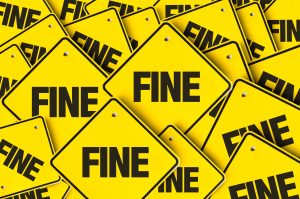As a Burlington paralegal practicing Landlord and Tenant Board matters I frequently represent both landlords and tenants at the Landlord and Tenant Board. I have had the pleasure of meeting many Realtors in my practice and at the Pro Dev conference last year. When new landlords have a question about Landlord and Tenant issues they often turn to their Realtor for advice. Realtors working on a purchase or sale of a tenanted property need certainty around vacant possession.
Here are 9 helpful tips for Realtors about Landlord and Tenant law in Ontario in 2019:
1. Change in Rent Control
Rules about which units are subject to limited rent increases (rent control) have changed a few times in recent years. Rental units first occupied for residential purposes after November 15, 2018 are now exempt from rent control. All other rental units are subject to the rules that limit increases.
For Realtors this means that clients purchasing new build homes or condos as investments will not be subject to rent control. (A word of caution: rent control is a political issue that can change quickly, so these rules are subject to change at any time)
2. Only Landlords or Representatives authorized by the Law Society can sign LTB forms
Many landlords have other people handle the paperwork and management of their rental business. Superintendents, property managers, or Realtors often fill this role. In the past if a notice needed to given to a tenant or an application filed with the LTB, the person doing the paperwork for the landlord would frequently sign the paperwork on their behalf. Recent rulings have stated that only Landlords or representatives authorized by the Law Society can sign these forms. Authorized representatives include lawyers, paralegals, friends or family members assisting for no compensation, or employees of the landlord who work solely for the landlord. This definition would not include a Realtor assisting a client.
3. Current scheduling delays at the LTB increase consequences of errors on applications

The LTB website indicates that hearings should be scheduled within 3-6 weeks of an application being filed. However, various factors have led to understaffing and delays in scheduling hearings. While a technical error that required a new application and hearing in the past may have delayed your proceeding by 3-6 weeks, the same mistake today could cause a delay of at least 2 months. Delays in hearings for landlord applications mean increased rental arrears, missed closing dates, or delayed construction. An experienced and licensed paralegal is a good investment to protect against these additional costs.
4. Quick action is required to protect landlord investments
There are at least two steps that have to be taken before a landlord can evict a tenant. Delays in either step delay the required hearing at the Landlord and Tenant Board. This is not meant to discourage showing compassion to a tenant in a difficult but temporary situation. However, if the issue is rental arrears, the arrears may continue to grow while waiting for a hearing. Depending on the rent for the unit, you may reach the $25,000 limit that the LTB can award quickly.
If the issue is vacant possession to meet a condition of sale of the property, a delay in filing the necessary paperwork with the Board will frequently mean the hearing is not scheduled soon enough for an eviction prior to your closing date. If the issue is vacant possession for renovations, a delay in filing the necessary paperwork can mean the hearing is not scheduled soon enough for the landlord to obtain eviction before the ideal date. This can mean increased construction costs, particularly if construction is delayed into winter months. If the issue is damage to the unit, a delay in obtaining a hearing may mean continued damage.
There is always merit in working with people to resolve problems diplomatically. However, delaying necessary paperwork can increase costs to the landlord if a solution cannot be reached without formal LTB proceedings.
5. $25,000 fines for breach of the rules by an individual landlord
Under the Residential Tenancies Act, there are penalties for landlords who breach their responsibilities. Most landlords are aware of the most common penalty: rent abatements for services not received by the tenant, or interference with enjoyment of the property. However, it is important to note that an individual landlord can also be fined up to $25,000 for a breach of the rules. Fines are normally reserved for deliberate and particularly serious transgressions, but landlords should be cautious.


6. $100,000 fines for breach of the rules by a corporate landlord
Under the Residential Tenancies Act, there are penalties for landlords who breach their responsibilities. Most landlords are aware of the most common penalty: rent abatements to compensate for services not received by the tenant, or interference with enjoyment of the property. However, it is important to note that corporate landlords can also be fined up to $100,000 for a breach of the rules. Fines are normally reserved for deliberate and particularly serious transgressions, but landlords should be cautious. This is particularly significant for small landlords who have incorporated but have a small portfolio of rental units.
7. Tenants can receive $25,000 for improper evictions
For many landlords the eviction process at the Landlord and Tenant Board can seem tedious and sometimes unfair. As licensed paralegals, Carr Paralegal cannot and would never condone an illegal eviction or misrepresent facts to obtain an eviction. However, it is well documented that many tenants are evicted under false pretenses. In some areas this is referred to as a “renoviction” because the landlord evicts a tenant on a temporary basis to complete upgrades, then re-rents the unit at a higher price rather than allowing the original tenant to return at the previous rate as required by law.
 Not only are these practices illegal and unethical, tenants who are evicted in this manner are entitled to compensation. If a tenant vacates a rental unit because of the wrongful conduct of the landlord (including continued poor maintenance, harassment, or threatened eviction which they believed to be legally binding), the tenant can apply to the LTB for compensation from the landlord. If the Landlord and Tenant Board agrees that the tenant moved because of the wrongful conduct of the landlord, they will order the landlord to pay for 1 year of additional living expenses incurred by the tenant, plus costs incurred by the tenant because of the move, such as a moving truck. The amount payable to the tenant is limited to $25,000. Don’t forget that the Board can also order fines against a landlord in addition to the compensation to the tenant.
Not only are these practices illegal and unethical, tenants who are evicted in this manner are entitled to compensation. If a tenant vacates a rental unit because of the wrongful conduct of the landlord (including continued poor maintenance, harassment, or threatened eviction which they believed to be legally binding), the tenant can apply to the LTB for compensation from the landlord. If the Landlord and Tenant Board agrees that the tenant moved because of the wrongful conduct of the landlord, they will order the landlord to pay for 1 year of additional living expenses incurred by the tenant, plus costs incurred by the tenant because of the move, such as a moving truck. The amount payable to the tenant is limited to $25,000. Don’t forget that the Board can also order fines against a landlord in addition to the compensation to the tenant.
8. Snow Removal – the Landlord’s responsibility
Almost every lease prepared for a single-family home by a Realtor prior to the Ontario Mandatory Lease released in 2018 stated that snow removal was the responsibility of the tenant. The LTB used to say that responsibility for snow removal could be negotiated between the landlord and the tenant. It was a vague area. However, recent decisions by the LTB have confirmed that removal of snow and ice is part of maintenance, which is the responsibility of the landlord. This means that snow removal must be provided by the landlord. Alternatively, a separate contract can be made with the tenant in which the tenant is compensated to perform the winter maintenance.
9. A Tenancy survives the sale of a property
Most Realtors know that a tenancy survives the sale of a property. The purchaser of a rented property will either become the landlord, or want to evict the tenant so they can personally occupy the unit. If the purchaser assumes the tenant, all terms and conditions of the existing lease remain the same. However, if the purchaser intends to live in the unit themselves, an application needs to be made to the LTB for an eviction order.
When and how this is done can determine if the sale closes and if compensation is owed to the tenant. Many Realtors don’t fully understand the technical details of evicting a tenant to provide vacant possession for the purchasers. This is an area that requires legal advice from a licensed paralegal or lawyer. (Note that real estate lawyers don’t normally practice LTB matters making a licensed paralegal more experienced more affordable).
When you or your clients have questions, Carr Paralegal is here to help!
Only individuals licensed to provide legal services can give legal advice under the Law Society Act. As a Realtor you have valuable real estate experience and some good tips. Avoid providing legal advice and refer your clients to trusted online resources or Carr Paralegal for solid advice.
